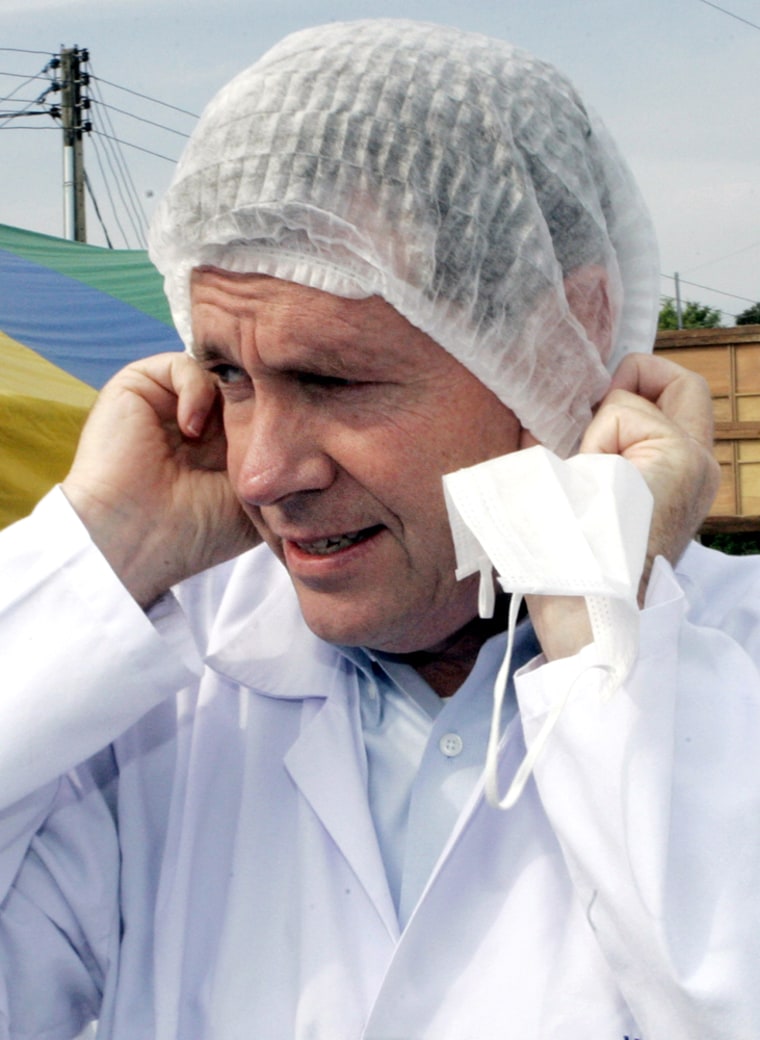An international delegation, including U.S. Health and Human Services Secretary Michael Leavitt, toured a chicken coop in Thailand on Tuesday. The barn had been scrubbed clean of the bird flu virus plaguing much of Asia.
“We are worried about places where we are not seeing processing done with this level and degree of quality,” said Leavitt. “It only takes one spark to set this virus off.”
Asia is where the avian virus first started killing birds and then people. The current virus, discovered in 1997, is now spreading faster and farther than ever.
That’s why the United States and other countries are watching it so closely.
“If it happens anywhere there is risk everywhere,” said Leavitt.
A perfect starting point
The virus is concentrated in some of the poorest countries in Asia, the ones least able to contain a health crisis. At least 117 people have been infected. More than half of them have died from the disease.
Southeast Asia is the perfect starting point for a pandemic. Millions of people are in close proximity to each other and to the birds that can carry the deadly virus.
Vietnam is the hardest-hit nation, where wandering domestic chickens have spread the bird flu from farm to farm. Villagers who catch the virus complain of fever one day and are dead the next.
The United States and China have sent money to Vietnam to help vaccinate 260 million birds, but the disease is spreading faster than the vaccine. If one bird is sick, the entire flock is destroyed, but not the ones on neighboring farms, a situation some experts believe is helping to perpetuate the disease.
Twelve people have died in Thailand, four in Cambodia and three in Indonesia. Each country is stockpiling as much anti-viral medication as it can, but no one country has enough to protect even a quarter of its population, so the focus continues to be on containment.
Is a pandemic inevitable?
Hong Kong is clear of the virus for now, but health officials are resigned to the fact that an outbreak is coming.
“We cannot stop that from happening,” said Dr. Ronald Lam, in charge of Hong Kong’s emergency medical response. “Definitely pandemic will come.”
Hospitals, nursing homes and clinics are monitored for signs of influenza. Every incoming passenger at the airport is electronically scanned for fever.
Experts fear that if the disease becomes contagious among people, someone boarding a plane in a place like Hong Kong could spread the virus around the world in a matter of hours.
"You'd be surprised how fast that virus can travel from a Third World, backward country farm into New York City,” said Dr. Frederick Leung of Hong Kong University, who has studied the avian virus for years. "I bet it is faster than a terrorist can arrive."
“Viruses observe no country boundaries,” added Leung, whose lab is often called upon to verify and track the deadly flu. “The virus doesn’t apply for a visa to go travel.”
